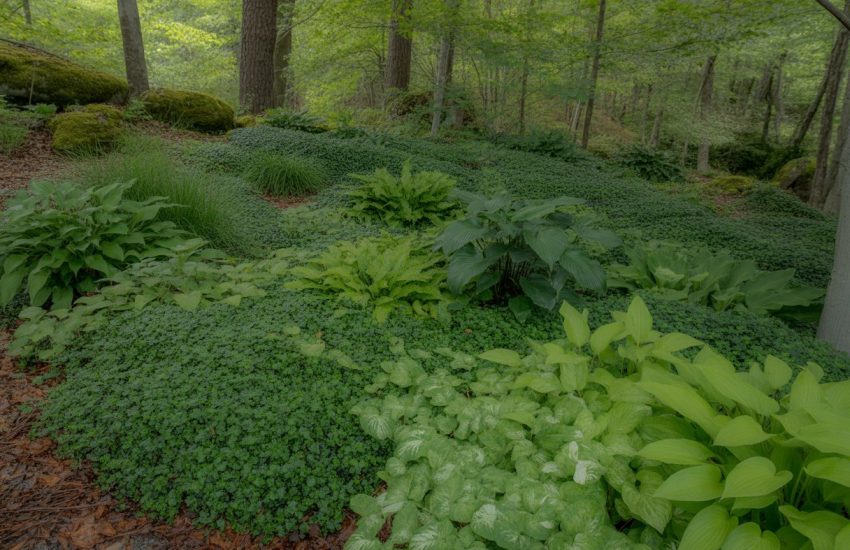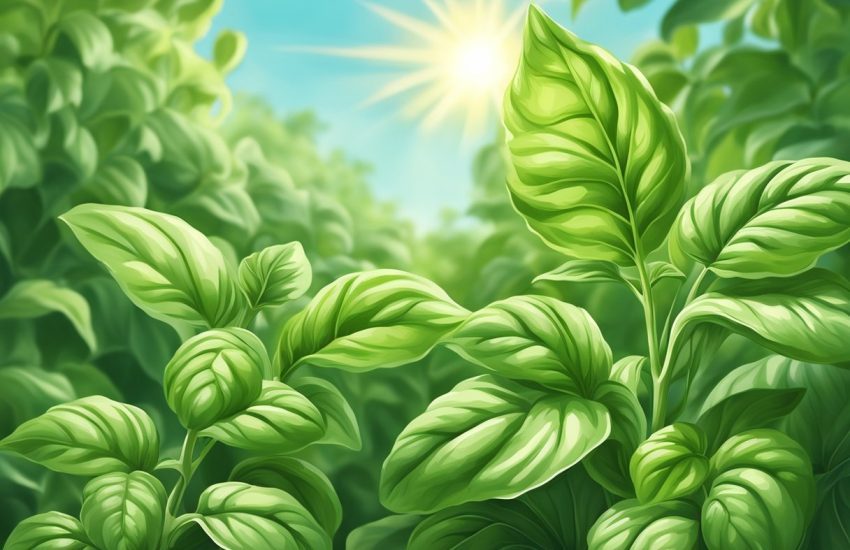Do Deer Eat Garden Phlox? (Phlox Paniculata)
Last updated: February 14, 2026

Garden phlox (Phlox Paniculata) is a simple, beautiful garden plant to grow with nice fragrant blooms, which makes it a favorite among gardeners. But one of the most common concerns they often have about planting the garden phlox is whether the local wildlife, like deer, will eat it.
For those who live in areas frequently roamed by deer, having a clear answer is often sought after. While there are mixed answers to the question of whether a deer will eat your general phlox plant, this article will help clarify this. We will explore whether deer eat garden phlox and provide information on how to protect your garden from deer damage if the answer is yes.
Do Deer Eat Garden Phlox Plants?
Deer are known for their unpredictable eating habits, and to get a firm idea if they eat garden phlox, we first have to understand the plant itself.
What is Garden Phlox?
Garden Phlox is a native North American flowering plant that belongs to the Polemoniaceae family. The plant typically reaches a height of 2 to 4 feet, with a spread of 1 to 3 feet, and features lance-shaped, opposite leaves that grow in pairs along the stems. These leaves are usually dark green and provide a lush backdrop for the colorful flowers.
They grow in upright clumps and are often sought after because of their summer blooming and dense flower clusters that give off a delightful fragrance. Each flower has five petals and a prominent central tubular structure. Their vibrant colors and fragrant scent make them an eye-catching addition to garden beds, hence their prominent use for landscaping.

Do Deer Like to Eat Phlox Paniculata Flowers?
The answer to whether deer eat Phlox Paniculata flowers is complex. Deer are known for their browsing habits, and many gardeners have experienced the frustration of deer feeding on their plants and flowers. While garden phlox is not at the top of a deer’s preferred menu because they often don’t like sweet-smelling plants, it is not entirely deer-resistant either.
Yes, deer will eat your garden phlox, but several factors often influence whether they will graze on your garden phlox. The extent to which deer browse on garden phlox can vary based on the local deer population. In areas with a high deer population and limited food sources, deer may be likelier to nibble on a broader range of plants, including your garden phlox.
During periods of limited forage, such as winter or dry summers, deer may resort to consuming plants they would otherwise avoid. Your garden phlox, with its lush foliage and flowers, may become a convenient food source when food is scarce. Some garden phlox varieties may be more resistant to deer browsing than others. While no garden phlox plant variety can be considered entirely deer-proof, certain cultivars may be less appealing to deer due to their scent or taste.
The location of your garden phlox plays a significant role in whether deer choose to consume it. If your phlox plants are located in or near deer-populated areas, such as woodlands or rural landscapes, they are more likely to be targeted by foraging deer. Similarly, if garden phlox is easily accessible, deer are more inclined to sample it. Deer often exhibits a preference for young, tender growth, which is more succulent and easier to digest. If your garden phlox is in its early growth stages, it may be more susceptible to deer browsing.
Are Garden Phlox (Phlox Paniculata) a Deer-Resistant Plant?
Deer, with their varied dietary preferences, can be a source of frustration for gardeners when it comes to protecting their plants, including the beloved garden phlox (Phlox paniculata). However, there are certain garden phlox cultivars that are less appealing to deer, often due to their characteristics like more pungent smells and tough foliage.
For instance, Phlox paniculata ‘David,’ a pure white garden phlox known for its strong fragrance and sturdy stem, is a good choice as a deer-resistant plant. The strong scent and spikes, combined with the brightness of the white flowers, seem to deter deer from feeding on this cultivar. ‘Nicky’ phlox, magenta-colored flowers, and delightful fragrance can also help keep deer at bay, making it a good choice for deer-prone gardens.
Phlox paniculata ‘Jeana,’ with its pale lavender-pink flowers, is considered one of the more deer-resistant Garden Phlox varieties. Its resistance is attributed to its coarse stem and unique blooms with a sweet fragrance.
Other cultivars, such as Phlox maculata, Phlox divaricata, Phlox nivalis (Trailing Phlox), Phlox douglasii, Phlox carolina (Thickleaf Phlox), and Phlox pilosa (Downy phlox) also display characteristics that make them usually unattractive to most deer.
Signs of Deer Damage to Garden Phlox
Gardeners cultivating garden phlox may occasionally face the frustrating consequences of deer rampaging through their gardens. Identifying the signs of deer damage to garden phlox is essential for early detection and promptly implementing preventive measures. It’s crucial to differentiate deer damage from other issues that can affect your garden phlox. Common problems like insect infestations, diseases, and weather-related damage can sometimes mimic deer-related issues.
One of the most apparent signs of deer damage is chewed or torn leaves. Deer are notorious for their ability to strip leaves from plants, often leaving jagged edges or unevenly eaten foliage behind. Additionally, deer often nibble on the tender tips of plant shoots, causing the shoots to become misshapen and potentially limiting their growth.
Some deer have been known to snap or break the stems of garden phlox, resulting in entire branches or flower clusters being damaged or severed from the plant. Deer may not only target the leaves and stems but also the vibrant blossoms of garden phlox. You may notice partially eaten flowers or completely missing flower heads.
Deer tend to feed at specific heights, depending on their size. This results in concentrated damage at a certain plant level, typically at browsing zones within their reach. In severe cases, deer may resort to stripping the bark from garden phlox stems. This behavior can be particularly damaging as it can disrupt the plant’s nutrient and water transport.
The presence of deer scat (droppings) near the damaged plants or deer tracks in the garden soil can confirm deer activity. This clearly indicates that deer have been visiting and feasting on your plants. By recognizing these signs, gardeners can take timely action to protect their garden phlox from deer damage.

How to Keep Deer Away from Phlox Paniculata
Protecting your garden from deer damage involves employing several approaches that combine natural, chemical, and physical deterrents.
Below are several methods showing how to keep deer away from phlox paniculata gardens:
Using Physical Barriers
Deer fences are one of the most effective physical barriers to protect your garden phlox. These tall fences create a formidable obstacle that deer cannot jump over and prevent them from entering your garden. You can read this simple guide on how to build a cheap and easy deer-proof garden fence.
Other physical barriers include using a protective cover or netting to cover and physically shield your plants from deer. Also, planting your garden phlox in raised beds can make it more challenging for deer to access your plants.
With Natural & Scent-Based Deterrence
Planting natural deer deterrents alongside your garden phlox can help keep deer at bay. Some plants are known for their unappealing scent or taste to deer, and they act as a protective barrier. Consider interplanting your garden phlox with plants known to repel deer, such as yarrow, daffodils, or marigolds. The scent and presence of these plants can discourage deer from approaching your phlox.
Also, using scent-based deterrents like bars of soap, human hair, or predator urine can create an odor barrier around your garden. Deer are often deterred by unusual or strong scents. Placing these deterrents strategically in your garden can help protect your phlox.
By Planting Deer-Resistant Phlox Varieties
Planting deer-resistant garden phlox varieties, as discussed earlier, is another practical method to protect your plants. Opt for phlox varieties that are less appealing to deer due to features like their intense color, fragrance, coarse stems, or natural chemical compounds.
Installing Noise-Based, Water, and Visual Deterrents
Deer get easily startled by unexpected sounds, making noise-based deterrents, another effective means of protecting your plant. Implementing noise and water-based deterrents like motion-activated sprinklers, wind chimes, or even a barking dog recording can startle deer and discourage them from approaching your garden.
Visual deterrents can also be effective in deterring deer, as they are very sensitive to sudden movements. Hanging shiny, reflective objects like aluminum foil strips, old CDs, or Mylar balloons in your garden can create visual disturbances that deer find uncomfortable and frightening.
Protecting Garden Phlox from Deer Damage Using Deer Repellents
Deer repellents are one of the most used methods for protecting garden phlox from deer damage. These products come in various forms, including sprays and powders. It is advisable you Apply them as directed and be prepared to reapply after rain to maintain their effectiveness.
Combining these proven methods can help protect your garden phlox from deer damage. Each approach offers unique advantages, and the most effective strategy may vary based on your garden’s size and specific deer-related challenges.
The Final Verdict
The question of whether deer eat garden phlox can be answered definitively: yes, deer do eat garden phlox (Phlox paniculata). Gardeners in areas with deer populations have often experienced the frustration of discovering their prized phlox plants stripped of leaves and blossoms. Their preference for garden phlox may vary from region to region and is influenced by several factors, like the local deer population, the availability of alternative food sources, and individual deer behavior. But by adopting measures to deter deer while nurturing your garden, you can continue to enjoy the vibrant beauty of garden phlox without resorting to harming no deer.


